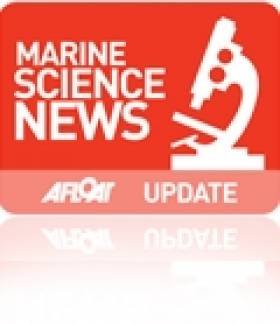Displaying items by tag: Research Vessels ShipTime
Scientific Ship-Time Applications Now Open for 2014-2015
#ResearchShipTime – The Marine Institute are calling for applications for those wishing to accept ship-time on board the research vessels RV Celtic Explorer and RV Celtic Voyager in 2014 and 2015.
Applications for ship-time must be submitted using Research Vessel Operations' on-line 'Survey Planning System' (SPS) before 20th September 2013.
Applicants can get further information from the Apply for Ship-time pageApplications for ship-time must be submitted using Research Vessel Operations' on-line 'Survey Planning System' (SPS) before 20th September 2013.
Applicants can get further information from the Apply for Ship-time page on the Marine Institute website www.marine.ie and contact [email protected] to obtain login details to SPS.
Applicants should read The Vessel Charter Guidelines (.doc 256 KB) prior to submitting their application.
Applicants may seek grant-aid to cover all or part of the vessel charter costs.
For information on eligibility for grant-aid and additional application requirements please refer to the Grant-Aid Guidelines
Note: Applications for grant-aid will only be accepted for ship-time in 2014. Applications for grant-aid for ship-time in 2015 will be accepted in 2014.
Persons considering making an application for shiptime for training purposes are advised to consult with Strategic Marine Alliance for Research and Training (SMART) via [email protected].
This marine science partnership programme is designed to standardise and optimise ship based training for 3rd level students and provide nationally accredited ship based training activities.
The RV Celtic Explorer will once again be making transatlantic passages to complete a survey in Newfoundland waters in April 2014 (Westward) and May (Eastward) and a targeted call for applications to utilise these transects is being included in this year's call.
Applications are invited from researchers to utilise to utilise the vessel for up to a 14 day period on the western transect starting in mid-April 2014.
The initiative is planned to coincide with a planned charter survey in Newfoundland waters in April/May 2014 and is a precursor to future transatlantic co-operative research as outlined at the recent Atlantic Strategy meeting which included EU, US and Canadian Partners.
The PIP funding scheme will accept proposals for part funding of shiptime and full funding of associated research. For further information please go to their website: http://www.pip.ie/page/1





























































